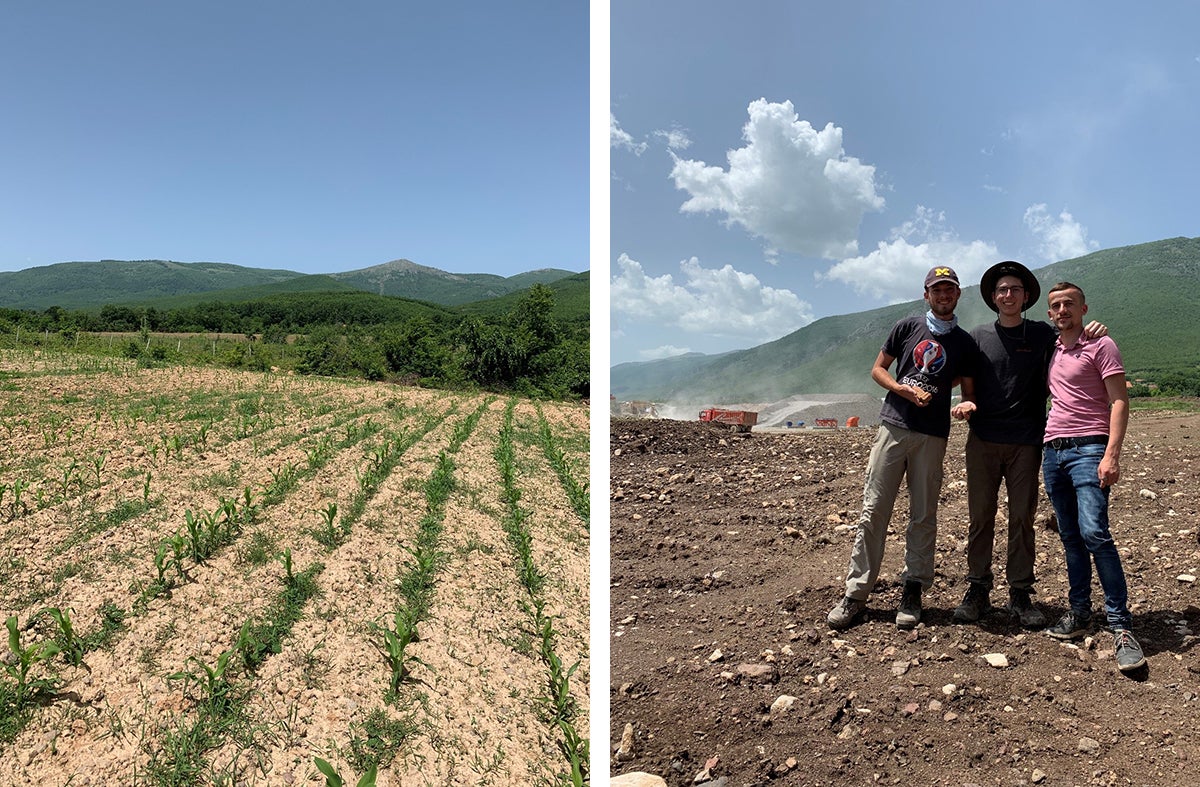My time in Kosovo so far has truly been amazing and being in the field has allowed me a much greater appreciation of archaeology and Kosovar culture. Today was my second day out in the field surveying. I am on survey team D which is led by Sylvia, with Julian and Fatjon. Today we decided to survey a newer area with many fields that had not been surveyed before. However, as we quickly realized, surveying was going to be especially difficult today. The heat was intense, and the terrain was not easy to cross. The area was mountainous and often filled with tall grass. We talked to a few farmers in the area and they told us that they had never seen any pottery or ceramic in the area. We proved those farmers right very quickly as we went many fields without finding a single piece of pottery.

After not finding anything we jumped in the transporter and Sylvia took us to a new area. Much of this land was open and had much better visibility. This was promising, but yet again, we were not able to find much pottery. In this new area we only found four or five pieces of pottery. We were able to determine that they were most likely Medieval pottery. A few of the pieces were plain, which may indicate that they were used for practical purposes, possibly cooking, while others were highly decorated which may mean that they were valued for their visual aesthetic. In this new area, we ran into a local man whom the group had met a few days before. He invited us in for Turkish coffee, juice, and sweets. This incredible hospitality is very common in Kosovo. The people here have great love for guests and have a deep appreciation for their history and culture. Although I have only been here for a little over a week, I can undoubtedly say that Kosovo is a very special place. The man was incredibly kind and opened up to us about his life. We learned that he had just recently married and is planning on starting a family very soon. He also just bought a new puppy which the group immediately fell in love with. Perhaps most importantly, he reflected about the war and shared how it has affected his family. While the war was twenty years ago, it still has an incredibly significant effect on Kosovo today.
After coffee, we surveyed more fields where we found sparse amounts of pottery. We stopped for lunch, where a woman allowed us to use the shade of her front yard to rest. As we were eating, she graciously brought us cold water and raki for us to enjoy. This again speaks to Kosovar culture and how incredibly hospitable the people here are. They love their history and always ask about what we find. After lunch, we went to a few more fields where we were not able to find anything significant. While at first this may seem demoralizing, sometimes we can learn just as much about what we do not find as what we do. With the very low concentration of artifacts found, we can infer that this area was probably not a site. It may not have had as much importance as other areas in the landscape, where we cannot come out of a single field without finding ten or more artifacts. Archeology is a very exhaustive process. We can go days without finding much or days with finding so many artifacts it becomes hard to take them all back. However only through this process we can work to piece together thousands of years of history.